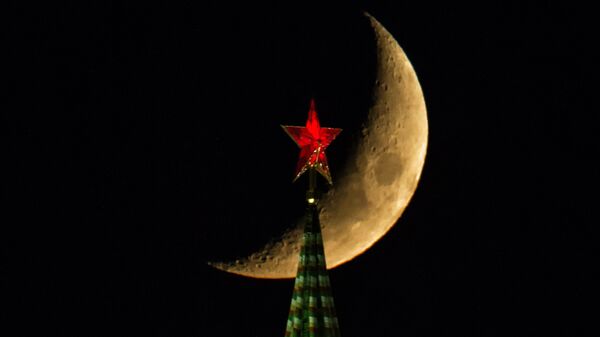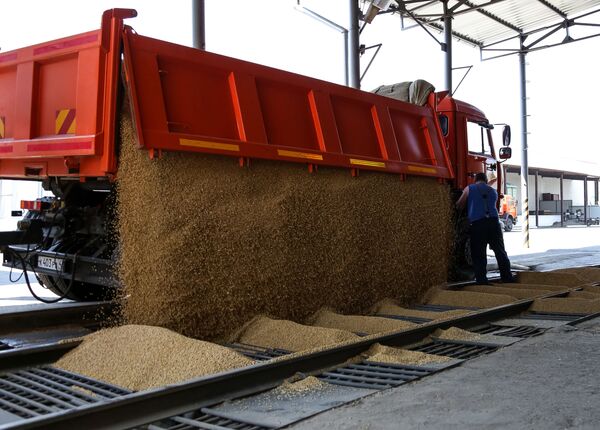Russia’s economy is more resilient against external shocks associated with falling oil prices than other major exporters, and therefore, will suffer less, Moody’s believes.
In a new report on Russia’s credit profile amid the collapse of oil benchmarks to their lowest levels since the early 2000s, Moody’s says the shocks will hit countries whose budgets depend most heavily on energy exports hardest.
Moody’s estimates Russia’s budget surplus to turn into a deficit of less than 1 percent of GDP in 2020, and says Moscow will be able to cushion the blow thanks in part to its large foreign exchange reserves, which enable the country to pay off as much as 90 percent of its external debt at a moment’s notice if necessary. Furthermore, the agency notes, Russia’s maintenance of a flexible exchange rate makes it more resilient.
Russia also stands to lose less than other major oil exporters owing to the smaller percentage that energy exports make up in its total exports. About 30 percent of Russia’s GDP is based on exports, with hydrocarbons making up about 65 percent of that figure, according to a recent World Bank report.

According to Moody’s collapsing oil prices will deprive Russia’s budget of the equivalent of roughly $30 billion, with Saudi Arabia’s treasury expected to lose about the same amount, while Iraq, Kuwait, Oman, Qatar and Azerbaijan will lose anywhere from $5 to $22 billion.
However, owing to its $570 billion sovereign wealth fund cushion (including $150 billion in liquid assets) and other factors, Russia has a better chance to ride out the storm, Moody’s says. “The sovereigns most vulnerable to lower oil prices in 2020-21 are those with the highest reliance on hydrocarbons as a source of fiscal revenue and exports, and limited capacity to adjust,” senior Moody’s analyst Alexander Perjessy says.
According to the analyst, countries like Azerbaijan, Bahrain, Congo, Oman, Qatar, and Saudi Arabia could shave as much as 4-8 percent off their GDP in 2020 due to the oil price collapse, while countries like Russia, Kazakhstan, Trinidad and Tobago, Nigeria and Gabon facing lower losses – of 3 percent of GDP or less. Moody’s believes that the countries expected to experience the biggest problems include Angola, Bahrain, Iraq, and Oman, given a “limited” ability to adjust to the shocks.
Earlier this month, Russian Minister of Finance Anton Siluanov said that even at prices of $20-$30 a barrel, the state wouldn’t feel any shocks to the budget for at least three years. For comparison, Saudi Arabia requires oil prices averaging at $85 barrels for a budget to stay out of the red. Earlier this week, Bloomberg revealed that recent structural changes to Gulf state economies have made them far more vulnerable to fluctuations in oil prices. The net financial assets held by the Saudi government, for example, which include central bank reserves plus the sovereign wealth fund minus state debt, currently stand at just 0.1 percent of GDP, down from as much as 50 percent in 2014.
Alexander Razuvaev, chief of the Alpari Information Center, says he agrees with Moody’s assessment. “Russia is the sixth-largest economy in the world, and, unlike OPEC countries, is very diversified. In recent years, we’ve reduced our dependence on the situation in the global commodities and financial markets, including thanks to sanctions,” he said.
According to Razuvaev, Moody’s conclusions are a good sign for Russia’s stock market and the ruble, which recently took a tumble along with oil prices on market fears of a downgrade in the country’s sovereign rating.
Moody’s, meanwhile, expects oil prices to stabilize in the near future, rising to an average of $40-55 a barrel for 2020, and $50-$55 in 2021 as global economic growth resumes.
The dramatic plunge in crude prices began in early March, after the Saudi-led Organization of Petroleum Exporting Countries and Russia failed to reach a deal on collective cuts in oil output during talks in Vienna. The collapse of negotiations led OPEC+ to abolish all output restrictions, with Riyadh unleashing a price war, slashing April futures by $6-$8 and announcing millions of barrels per day in additional output, with other countries including Russia following suit.




